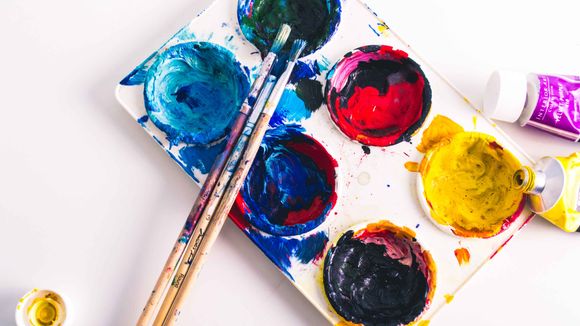A Deeper Look at Doodles
Doodling is an involuntary yet purposeful drawing that often occurs when we're bored, stressed, or preoccupied. Despite the spontaneous nature of doodles, they can actually tell us a lot about a person's mental state, personality traits, and even their thought processes.
A Peek into the Subconscious
Doodles often emerge from the subconscious mind, providing an unfiltered look at our thoughts and feelings. By analyzing doodles, psychologists and researchers can glean valuable insights into an individual's emotional state, creative impulses, and cognitive function. In some cases, doodles can even be used as a therapeutic tool, enabling individuals to process complex emotions and develop a greater sense of self-awareness.

Photo by Daria Tumanova on Unsplash
Personality Traits
Doodles can also reveal various aspects of a person's personality. For example, those who tend to draw geometric shapes might be analytical and detail-oriented, while those who create more organic shapes could be more creative and imaginative. Doodles that are more intricate and elaborate may suggest a high degree of patience and focus, whereas simple and repetitive patterns might indicate a desire for order and control.
A Source of Inspiration and Creativity
Doodling is often associated with moments of daydreaming or "zoning out." However, far from being a mindless activity, doodling can actually help us unlock our creative potential. As our minds wander, we can tap into a reservoir of ideas, images, and insights, allowing our imagination to run wild. In this way, doodles can serve as a catalyst for creative expression, problem-solving, and even artistic breakthroughs.
The Therapeutic Benefits of Doodling
Given the connection between doodles and the people who create them, it's no surprise that doodling can have significant therapeutic benefits. Here are a few ways in which doodling can be used to promote mental health and wellbeing:
Reducing Stress and Anxiety
Doodling can provide an escape from the stressors of everyday life, enabling us to shift our focus away from our anxieties and engage in a calming, meditative activity. Studies have shown that engaging in creative pursuits like doodling can lower stress levels, decrease heart rate, and even improve mood.

Photo by Aaron Lee on Unsplash
Enhancing Memory and Concentration
Research has found that doodling can actually help improve memory retention and cognitive performance. By engaging the brain's visual processing centers, doodling enables us to process and retain information more effectively, making it easier to focus and concentrate on tasks at hand.
Facilitating Emotional Expression
For individuals who struggle to express their emotions verbally, doodling can offer a non-threatening outlet for emotional expression. By channeling their feelings into visual images, individuals can process and understand their emotions in a more constructive manner, leading to enhanced self-awareness and emotional well-being.









